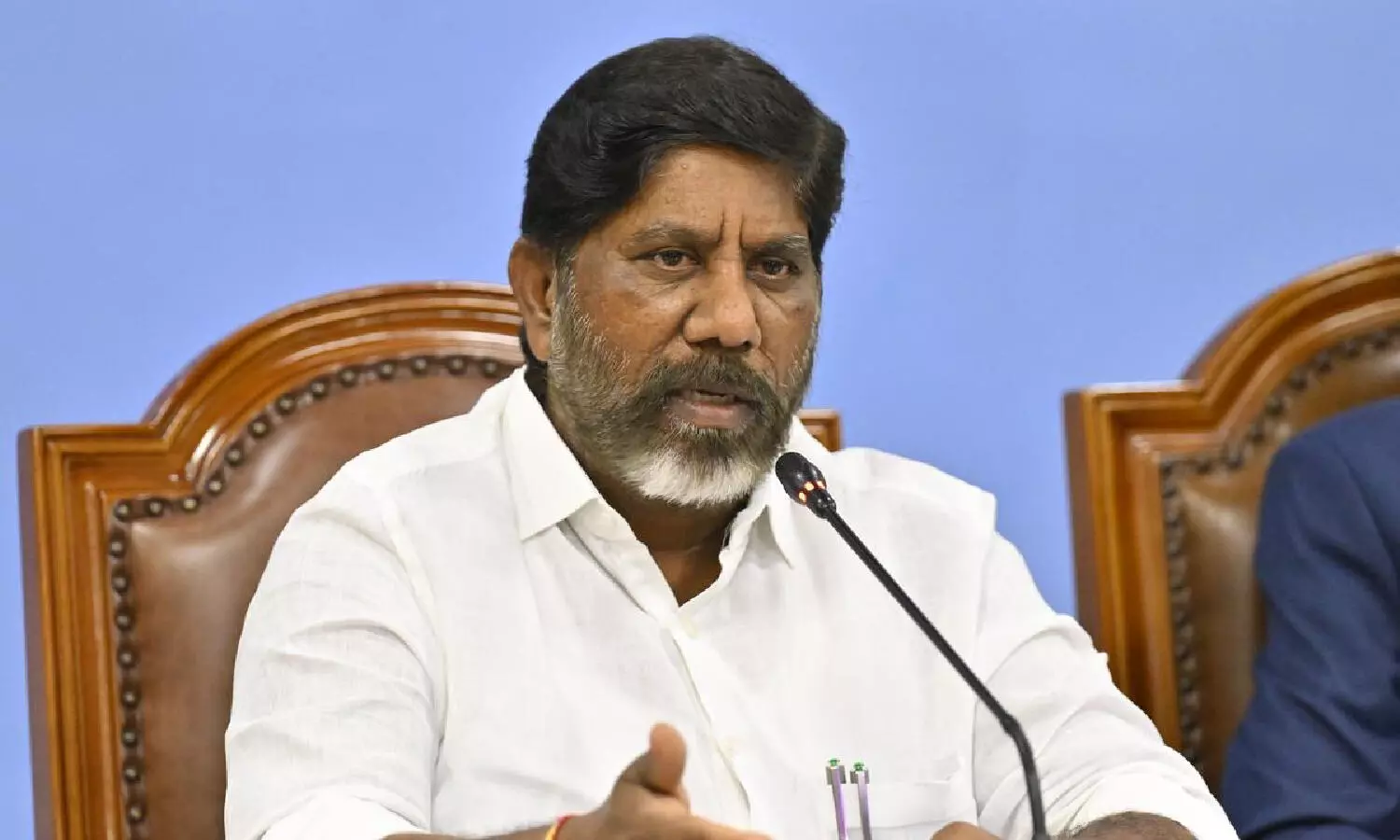Deputy CM Bhatti: GST rate rationalisation good move; south States should get more funds
He warned that any decline in State revenues could severely impact welfare schemes and infrastructure projects for the...
By Newsmeter Network
Deputy CM Bhatti: GST rate rationalisation good move; south States should get more funds
New Delhi/Hyderabad: Deputy Chief Minister Bhatti Vikramarka Mallu, a member of the GST Council’s Group of Ministers (GoM), emphasised the need for measures to protect State revenues.
He was speaking at a meeting on GST rate rationalisation and tax slab modifications in New Delhi on Thursday.
He warned that any decline in State revenues could severely impact welfare schemes and infrastructure projects for the poor and middle class.
States promised 14% annual growth in revenue
The GoM is constituted by the GST Council to examine and make recommendations on the rationalisation of GST tax slabs and change in tax rates.
The Deputy CM recalled that when GST was introduced, States were promised a 14 per cent annual growth in their revenues. To ensure this, a compensation mechanism was put in place for the first five years, where the Central government would compensate States for any shortfall in their 14 per cent growth target.
However, he noted that the 14 per cent growth has not been sustained, with the current annual growth for States hovering between 8 and 9 per cent. This could lead to negative revenue growth, he said.
Concern over inadequate fund allocation to southern States
Bhatti Vikramarka also highlighted the disproportionate allocation of funds to southern States.
He stated that despite States like Telangana, Karnataka and Tamil Nadu making significant contributions to the national income, they are not receiving a fair share of funds in proportion to their contributions.
Proposed solutions for revenue protection
The Deputy Chief Minister stated that the proposal of rate rationalisation and reduction of tax burden is always welcome. However, he insisted on the need for a proper compensation mechanism. He put forward two key proposals to address the potential revenue loss for States:
Continue the compensation cess: He suggested that the existing compensation cess should be extended, and the entire amount collected from it should be given directly to the respective States.
Increase GST on ‘sin’ and luxury goods: Alternatively, he proposed that if the compensation cess is scrapped, the GST rates on ‘sin’ and luxury products like cigarettes and alcohol should be increased to their current level. The additional revenue generated from this measure should then be allocated to the States.
He concluded that these measures would not only reduce the burden on regular taxpayers but also enable State governments to effectively continue their welfare and infrastructure development projects.